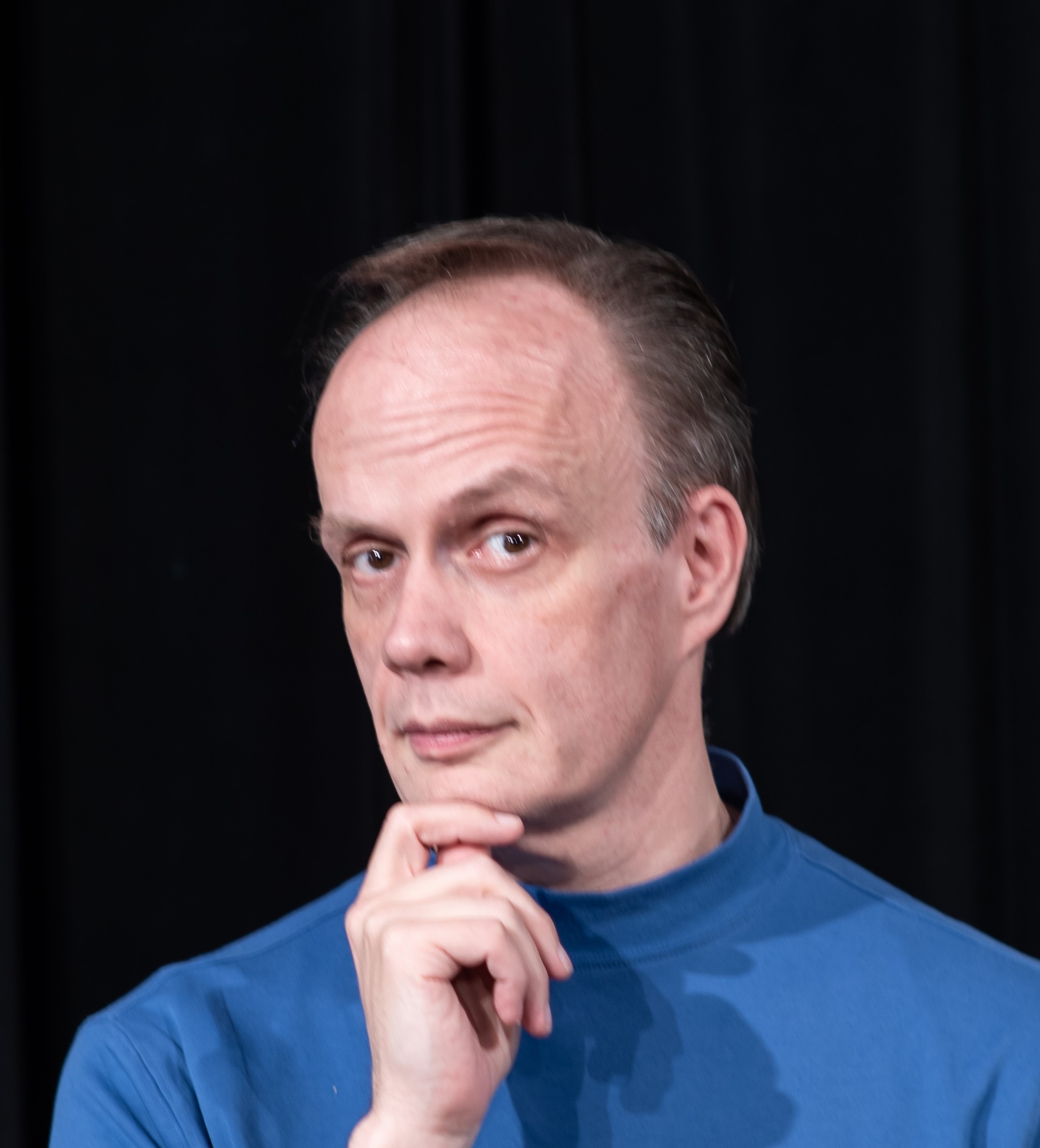
A current Ph.D. student in the School of Theatre and Dance, David Priebe spent this summer developing a unique program that has its roots in the theatre classroom. Using Augusto Boal’s Theatre of the Oppressed as a tool for recovery, especially to stimulate critical conversation and encourage conflict resolution, Priebe discovered creative means to help heal those struggling with addiction.
A graduate student taking the School’s required Theatre in the Community course, Priebe initially hoped to serve the incarcerated, but to fulfill the class service-learning assignment, he ultimately committed to working with halfway houses, institutes for those with substance use disorder. Because Priebe has never been in recovery, intensive research was necessary for him to create Recovery at Play, a six-week program designed to fight substance use disorder.
First, Priebe had to find a location which would allow him to implement his groundbreaking ideas. Fortunately, administrators at The Ranch at Dove Tree, were interested. They heard his pitch, offered feedback, and hired Priebe as an unpaid intern (a requirement due to the Health Insurance Portability and Accountability Act (HIPAA), a federal law protecting sensitive patient information.)
Priebe began by working with Texas Tech alum Vincent Sanchez, the Director of Outpatient Services at The Ranch at Dove Tree. With a master’s degree in Clinical Mental Health Counseling, Sanchez provided invaluable feedback and assistance with both structuring and solidifying the program.
In addition to working with personnel within the facility, Priebe also collaborated with Dr. George Comiskey in the Department of Community, Family, and Addiction Sciences at Texas Tech. A licensed chemical dependency counselor, a certified alcohol and drug counselor, and an internationally certified prevention specialist, Dr. Comiskey proved to be an invaluable resource, especially helping Priebe to align theatre activities with addiction recovery.
In the program itself, patients describe specific problems that the collective group attempts to solve, providing a variety of potential outcomes. For example, Priebe may prompt the group with a simple statement such as, “Let’s think about worries you may have about maintaining your sobriety once you leave the program,” to which students responded with improvised scenarios that may offer solutions.
Each session begins with a meditation to establish a calm environment; then, they branch into physical activities, such as mirroring, where two subjects do their best to scrutinize each other, paying close attention not only to build trust, but also to understand the potential of the body as a source of communication. They use improvisation to respond to questions, such as, “What is one of your fears about going into the world and graduating From the Ranch?” The subjects role-play scenarios, devise alternatives, and improvise dialogue, concluding with a short debrief and participant discussion. Because of potential HIPPA violations, performances remain intimate, serving previous graduates and current subjects.
To get the most from the program, subjects should attend the entire six weeks, but Priebe explained that this is challenging. Most of these outpatients were preparing to graduate from the facility, so the majority only completed a few sessions, but the feedback indicates that even an abbreviated experience yields excellent results. Participants wrote specifically about how much they appreciated the program, so much so that The Ranch at Dove Tree may incorporate it for inpatients in the future. This would encourage more participation, reformatting the program to best serve the needs of the facility.
Empowered by the mission of the Theatre and Dance in the Community class, David Priebe took a simple idea and transformed it into a reality, ultimately proving the healing power of the arts. He is excited to continue his groundbreaking work next summer, and hopes to publish the results once he gathers enough information from subsequent sessions.
Mental Health Service Administration (SAMHSA) National Helpline at 1-800-662-HELP (4357).
